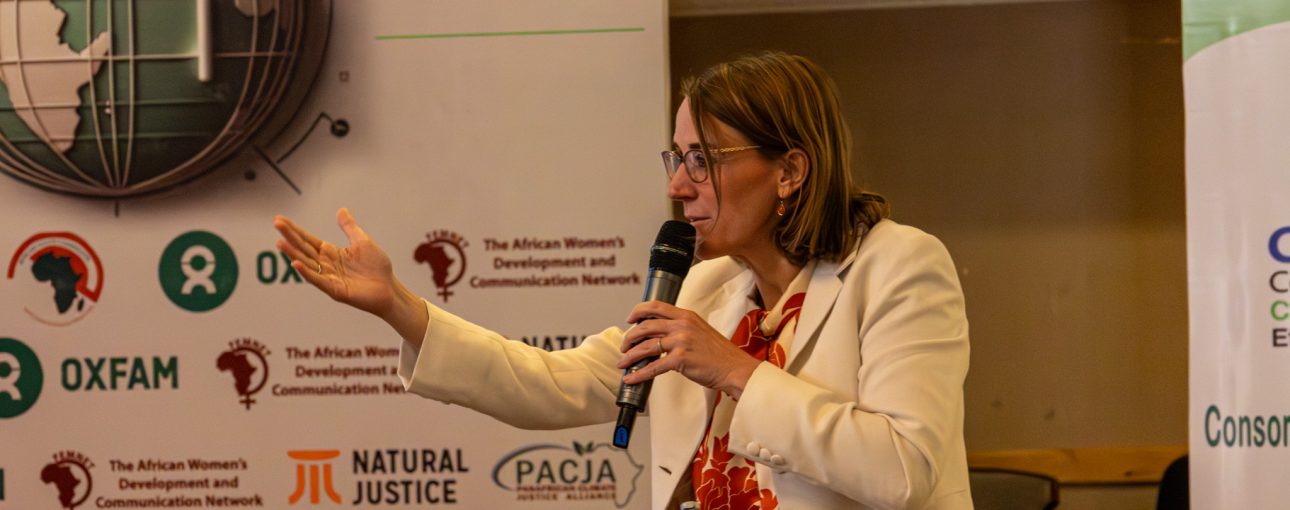Reflecting on the AACJ High-Level Policy Dialogue: Charting the Course for Climate Justice in Africa
The AACJ High-Level Policy Dialogue, which unfolded on the 8th of February, served as a pivotal moment for partners, embassies, consortium members, and stakeholders in the African Activists for Climate Justice (AACJ) consortium. This annual assembly, integral to the AACJ Partnership Agreement, highlighted the consortium’s dedication to nurturing impactful dialogue that elevates civil society voices and shapes effective policies for enduring goals in climate justice.
A Meeting of Minds and Missions
The event provided a comprehensive platform for assessing the consortium’s triumphs, addressing ongoing challenges, and identifying future opportunities. It spurred collaboration and innovative thinking, vital for enhancing the consortium’s initiatives aimed at building resilient communities and guiding progressive policies across AACJ countries amidst a shifting geopolitical climate that influences Africa’s climate action landscape.
Confronting Challenges, Capitalizing on Opportunities
At the heart of the AACJ’s efforts is the focus on adaptation and resilience, with discussions emphasizing the imperative to navigate through crises that obstruct these goals. The dialogue highlighted the need for stronger collaboration between South-South and South-North alliances to ensure local communities have access to essential resources. The consortium also expressed a commitment to exploring movement building, youth engagement, and capacity enhancement, all while tackling geopolitical challenges that overshadow climate action endeavors.
Strategic influence on sub-regional and global policy platforms was identified as a priority, including a commitment to championing the environmental rights of women, youth, and local communities. Discussions pointed towards renewable energy, agriculture, and water management as critical areas for immediate action.
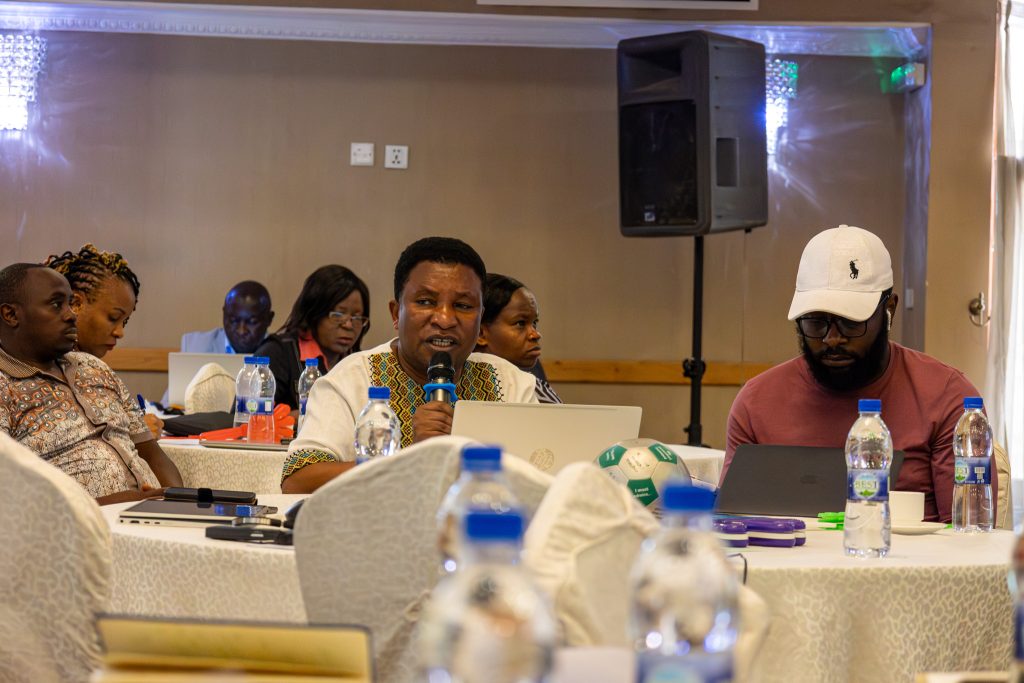
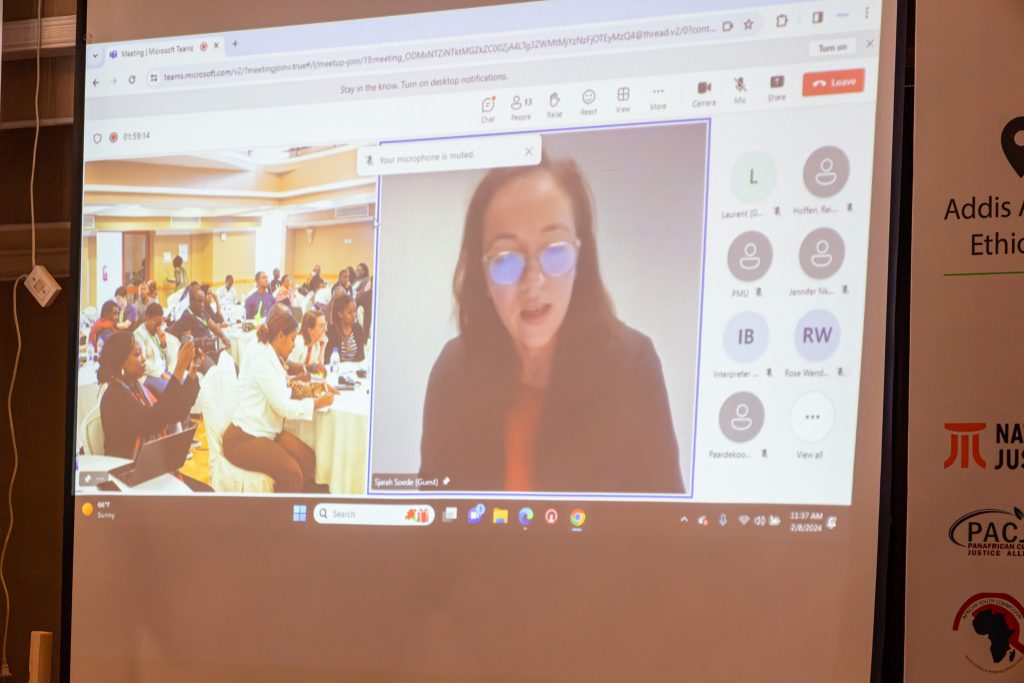
Addressing Challenges, Embracing Opportunities
Central to the AACJ’s mission is the pursuit of adaptation and resilience. The dialogue emphasized the need to navigate crises that impede these goals, underlining the criticality of enhanced collaboration between South-South and South-North to secure resources for local communities. Additionally, the consortium is keen on exploring avenues for movement building, engaging youth, and bolstering capacity, all while addressing the geopolitical challenges that loom over climate action efforts.
Strategically influencing sub-regional and global policy platforms emerged as a clear priority. This includes a dedication to advancing the environmental rights of women, youth, and local communities, ensuring their leadership in solution development. The dialogue also pinpointed renewable energy, agriculture, and water management as key areas for targeted action.
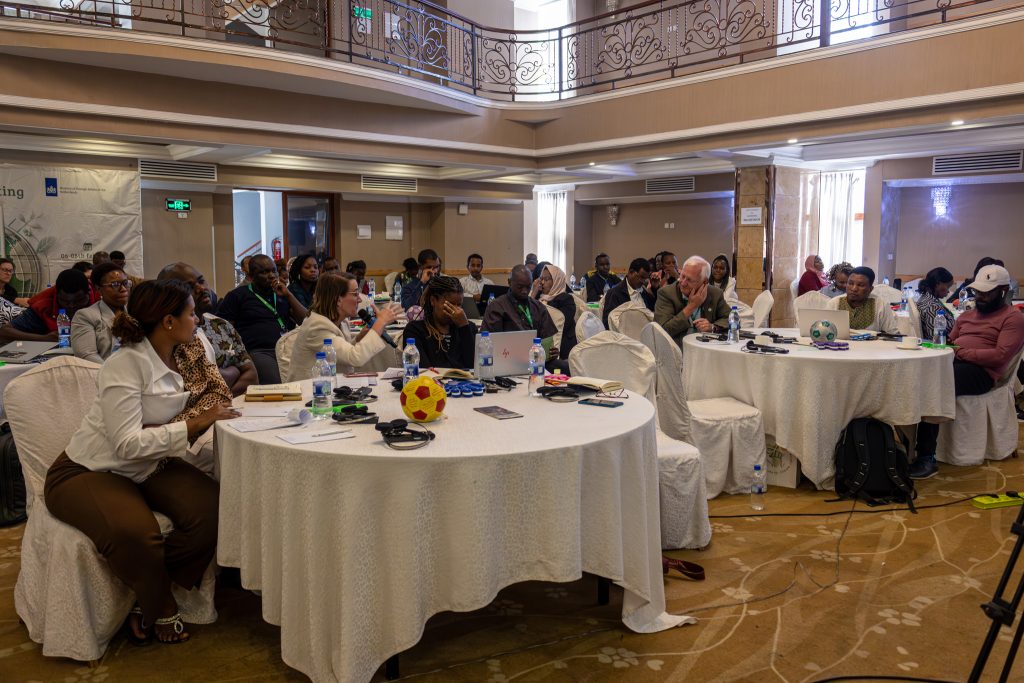
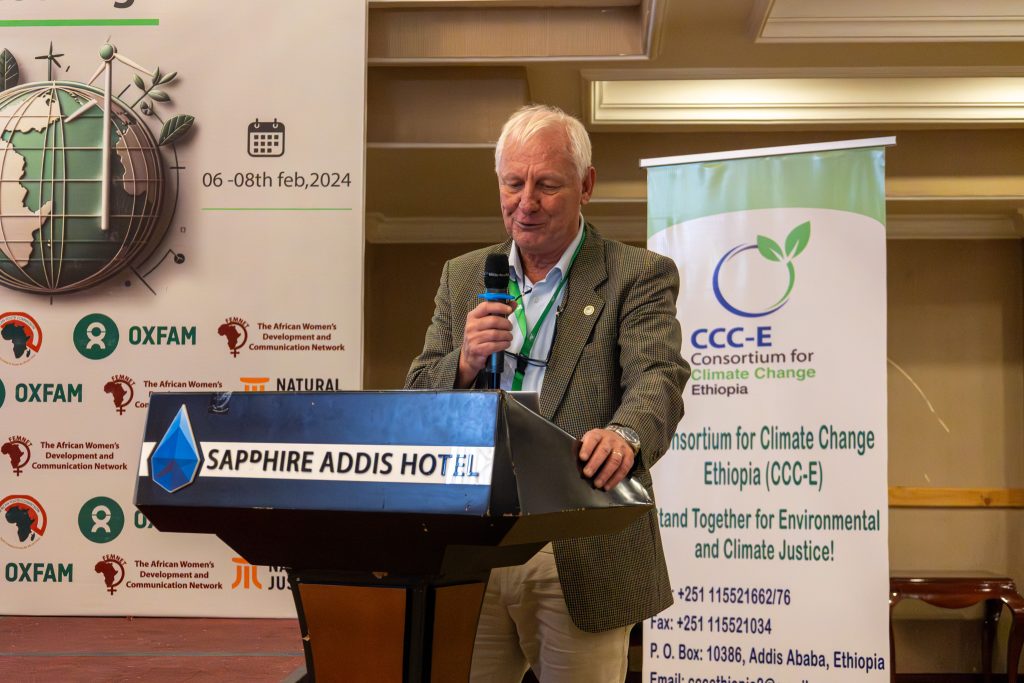
Voices of Advocacy and Change
The dialogue was enriched by the contributions of key figures, including Mithika Mwenda of PACJA and esteemed representatives from the Dutch Ministry of Foreign Affairs: Sjarah Soede – Deputy Director of the Inclusive Green Growth Department; Her Excellency Paula Schindeler, Deputy Head of Mission of the Ambassador of the Netherlands in Ethiopia; and Carel de Groot from the Embassy of the Dutch Government in Ethiopia and Kenya. Their insights underscored the pressing need for climate action and the importance of inclusive and equitable partnerships in driving solutions. Ambassador Schindeler’s remarks, “We cannot achieve our goals without including the voices of those most affected by climate change,” called for policies that are attuned to the lived realities of vulnerable populations.
Mithika Mwenda of PACJA, highlighted the broader geopolitical context and its implications for Africa’s climate agenda, “In the face of emergent right-wing movements and climate deniers, it’s imperative that we hold the line and push back with a united, strong Southern leadership of the climate agenda.”
The dialogue also featured insights from Sjarah Soede, Deputy Director of the Inclusive Green Growth Department at the Dutch Ministry of Foreign Affairs, who underscored the critical timing of our efforts: “As we navigate shrinking civic spaces, our meeting underscores the importance of partnership. Now, more than ever, it’s crucial to strengthen the bonds that allow civil society to voice and act on climate concerns effectively.”
Envisioning a Path of Progress Through Collective Effort
The AACJ High-Level Policy Dialogue reaffirmed the consortium’s commitment to a collaborative approach towards achieving climate justice. By bringing together a diverse group of partners and harnessing their collective strengths, the AACJ is setting the stage for meaningful change, not only for the current generation but for future ones as well. The dialogue marked a critical point for the consortium to refine its strategy and proceed as a unified force in combating climate change, laying down a promising route for progress and resilience across the continent.
The concerted efforts of the consortium to streamline its strategy and move forward as a unified entity underscore the transformative power of collective action in surmounting obstacles, paving the way towards a resilient and progressive future for Africa.

